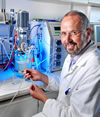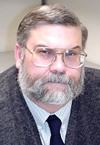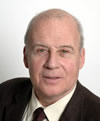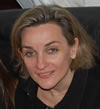 |
Clostridium
XII
International Conference on the Genetics, Physiology and Biotechnology of Solvent- and Acid-forming Clostridia
10 - 12 SEPTEMBER 2012
|
 |
|
|
|
HOME
HISTORY
IMPORTANT DATES
PROGRAMME
ORGANISING COMMITTEE
PHOTOS
PRESENTATIONS
REGISTRATION
VENUE
TRAVEL
ACCOMMODATION
SPONSORS
CONTACT US
CLOSTRIDIA.NET
|
|
PROGRAMME
Thehas been specifically designed to both reflect the attending scientific community (as indicated by submitted abstracts), as well as those areas perceived as current or of emerging importance. Areas of science covered include:-
Gene Tools and Genomics
Basic Physiology
Gene Regulation
Metabolic Engineering (including application of ‘Systems’ and ‘Synthetic’ Biology)
Environmental processes
Biopolymer Utilisation (with an emphasis on Biomass)
Bioprocessing
Industrial Applications & Processes
Acetogens (basic biology and industrial applications)
Clostridial-based product streams
DOWNLOAD PROGRAMME pdf HERE
DOWNLOAD ABSTRACT BOOK pdf HERE
There will be 7 Keynote speakers:
 |
HUBERT BAHL - "Global regulators in Clostridium acetobutylicum
"
Hubert Bahl is a professor of microbiology at the University of Rostock, Germany, and heads the Division of Microbiology at the Institute of Biological Sciences. His primary research area is the molecular physiology of clostridia, especially of Clostridium acetobutylicum. He is one of the pioneers who restarted research on the classical industrial ABE fermentation over 30 years ago. The focus of his recent research is the molecular analysis of the stress response (phosphate limitation, heat shock, oxidative stress) of C. acetobutylicum and of the cellular events connected with the metabolic shift from acid to solvent formation in C. acetobutylicum.
Photograph: Georg Scharnweber/NNN |
 |
DEREK LOVLEY - "Feeding Acetogenic Clostridia Electricity to Produce Organic Commodities from Carbon Dioxide"
Derek Lovley is a Distinguished Professor in the Department of Microbiology and Director of the Environmental Biotechnology Center at the University of Massachusetts. Research in his laboratory focuses on: anaerobic microbial processes that impact the natural cycling of carbon and metals in soils and sediments; bioremediation of hydrocarbon and metal contamination; and novel bioenergy strategies that involve microbe-electrode interactions. Recent research on Clostridia has focused on genome-scale modeling of the metabolism of Clostridium ljungdahlii and genetic manipulation of this organism designed to improve electron transfer from electrodes to cells and expand the diversity of products that C. ljungdahlii can produce from carbon dioxide reduction. |
 |
MIKE HIMMEL- "Engineering the Clostridium thermocellum cellulosome"
Dr. Himmel has over 30 years of research experience in protein biochemistry, recombinant technology, enzyme engineering, new microorganism discovery, and the physicochemistry of macromolecules. He has also supervised research that targets the application of site-directed-mutagenesis and rational protein design to the stabilization and improvement of important industrial enzymes, especially glycosyl hydrolases. During his career, Dr. Himmel has been awarded over $100 M in research funding and contributed to over 450 journal papers, meeting abstracts, patents, and books, the latest of which “Biomass Recalcitrance” is listed as a top selling book in science and has been translated into Chinese. |
 |
WOLFGANG BUCKEL - "Radical enzymes in clostridial butyrate synthesis".
Wolfgang Buckel is a Professor of Microbiology at the Philipps-Universität Marburg, Germany and a Fellow of the Max-Planck-Society. His research focusses on special enzymes in amino acid fermentation pathways by clostridia. The fermentation of glutamate to butyrate proceeds via three different pathways, all of which involve radical enzymes: the coenzyme B12 dependent glutamate mutase, the [4Fe-4S] cluster-containing 2-hydroxyglutaryl-CoA dehydratase that requires activation by reduced ferredoxin and ATP, as well as the [4Fe-4S] cluster and FAD-containing 4-hydroxybutyryl-CoA dehydratase. All three pathways terminate in the exergonic reduction of crotonyl-CoA to butyryl-CoA by NADH that drives the endergonic reduction of ferredoxin by NADH, a process called electron bifurcation.
|
 |
WILF MITCHELL - "Glucose Sensing in the Solventogenic Clostridia"
Wilf Mitchell is a Reader in Microbiology in the School of Life Sciences at Heriot-Watt University in Edinburgh. He has worked on sugar uptake and its control in solventogenic clostridia for 25 years. His principal interests relate to the phosphoenolpyruvate (PEP)-dependent phosphotransferase system (PTS), which is the major mechanism for uptake and phosphorylation of monosaccharides, disaccharides and sugar derivatives and also plays a central role in regulation of carbon metabolism in response to the nutrient status of the environment. Understanding and manipulation of the control circuits can make a major contribution to construction of strains with improved fermentation performance on mixed sugar substrates. |
 |
ISABELLE MENIAL-SALLES - “Metabolic Engineering of Clostridium acetobutylicum ATCC 824 for the High-Yield Production of Biofuels”
Dr. Meynial-Salles is an associate professor and a senior staff member of the Biochemical Engineering Department (LISBP), INSA (Technical University), Toulouse, France. Isabelle holds a Ph.D in enzymology, awarded by INSA in 1994. However, since 1995 Isabelle has focused her research on the development of novel and original bioprocesses based on the engineering of bacterial factories. Successes include the first continuous biological process for the production of 1,3 propanediol at high yield from glycerol using recombinant C. acetobutylicum. Currently, Isabelle’s 15-person strong team is implementing metabolic engineering and now, synthetic biology, to construct novel microorganisms for the production of next generation biofuels and bulk chemicals.
|
 |
WEIHONG JIANG - "CcpA, a Pleiotropic Key Regulator in Butanol-producing Clostridium acetobutylicum"
Weihong Jiang is a professor of microbiology in the Laboratory of Synthetic Biology and deputy director of Institut Pasteur of Shanghai, Chinese Academy of Sciences. Her research focuses on transcriptional factors related to biosynthesis of solvents and antibiotics in clostridia and streptomycetes, and genetic modification of these industry-important strains through metabolic engineering and synthetic biology approaches. Recent research on Clostridia has centered on dissection of the xylose-metabolic pathway and its regulatory mechanism in C. acetobutylicum and C. beijerinckii. The transcriptional factors, such as catabolite control protein A (CcpA) and two-component systems, were intensively investigated. |
|
|
|
|
|
|
|
|
|
|
|
|
|
|








